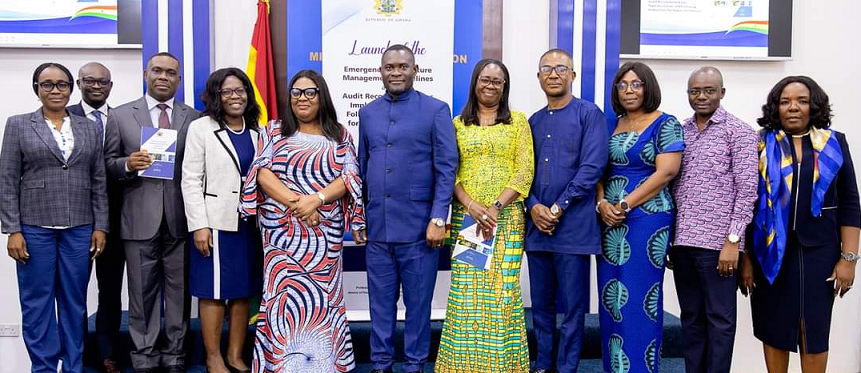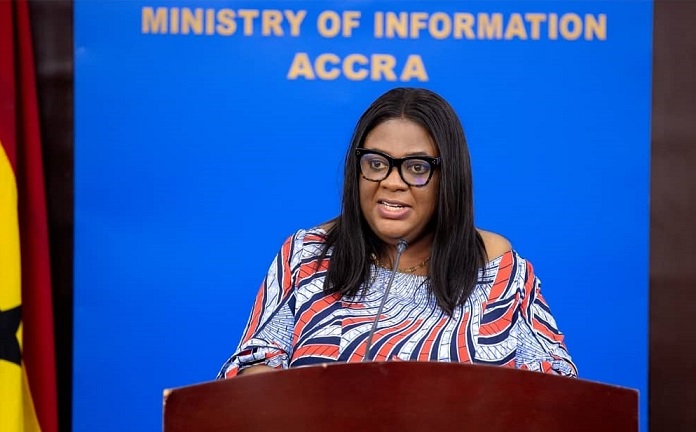The government through the Ministry for Finance has rolled out two guidelines to further bolster efforts to efficiently manage public finances, especially during emergencies, and implement audit recommendations.
The two documents, Emergency Expenditure Management Guidelines, and Audit Recommendation Implementation and Follow-Up Instructions for Public Institutions were launched in Accra on Monday, August 7, 2023.
It was launched by the Hon. Deputy Minister for Finance, John Kumah at the press centre of the Ministry of Information, with the purpose of ensuring effective accountability in the use of public resources.

The Hon. Deputy Minister who spoke on behalf of the Minister for Finance, Hon, Ken Ofori-Atta indicated that since the assumption of office in 2017, the Ministry has initiated several steps towards improving public financial management and accountability in the use of public resources.
That included enhancement and full roll-out of the GIFMIS system, development of guidelines for the effective function of audit committees, passage of the PFM regulations, passage of the fiscal responsibility Act, and the passage of the Public Procurement regulations.
“Taken together, these initiatives created platform of more resilient finances which allowed the Government to further extend our investment into infrastructure and strengthening of social safety nets to protect the most vulnerable,” he said.

He explained that the launch of the frameworks were crucial steps towards providing a means of making government more accountable to the good people of Ghana so we can be more confident about the future of our country and the management of public resources.
“Ultimately, our collective ambition must be to create an environment where every financial decision is made with integrity, and where mistakes are not only identified but rectified,” the Hon. Minister stated.
The Hon. Minister expressed appreciation to the team from the Ministry of Finance led by the Internal Audit Directorate, the Ghana Health Service, the Ministry of Defence, the Ministry of Health, the Controller and Accountant's General Department and the GIFMIS Secretariat, Internal Audit Agency and the Ghana Audit Service for working together to develop the guidelines.
The Director General for the Internal Audit Agency, Dr Eric Oduro Osae, explained that the two documents were borne out of the lessons from the challenges on expenditure during the COVID-19 pandemic to enable the government track, respond effectively to emergencies, and strictly comply with Public Financial Management (PFM) Acts.
“Follow up and tracking would in addition to bringing procedural clarity in the implementation of audit recommendations improve coordination and reduce duplicity among state institutions in ensuring that audit recommendations are implemented to the latter,” he said.
He expressed confidence that the two frameworks, when effectively implemented would further enhance public financial management and accountability, as government’s fiscal measures has improved the management of public expenditure.
He noted due to government’s fiscal measures, irregularities of Colleges of Education and Pre-University Educational Institutions in 2022 reduced by 58.6 per cent over that of 2021 amounting GHS10,821,146.02.
There was also a 30.6% reduction in operations of Ministries, Agencies, and Departments in 2022, Public Corporations and Other Statutory institutions reduced by 13.86%, while irregularities in the use of the District Assemblies Common Fund reduced by 18.9%.
The programme was attended by officials of MDAs including the Ministry of Finance, Defence, Health and Information and the media. END
